20 Apr2021
By Ann Marie Wernick
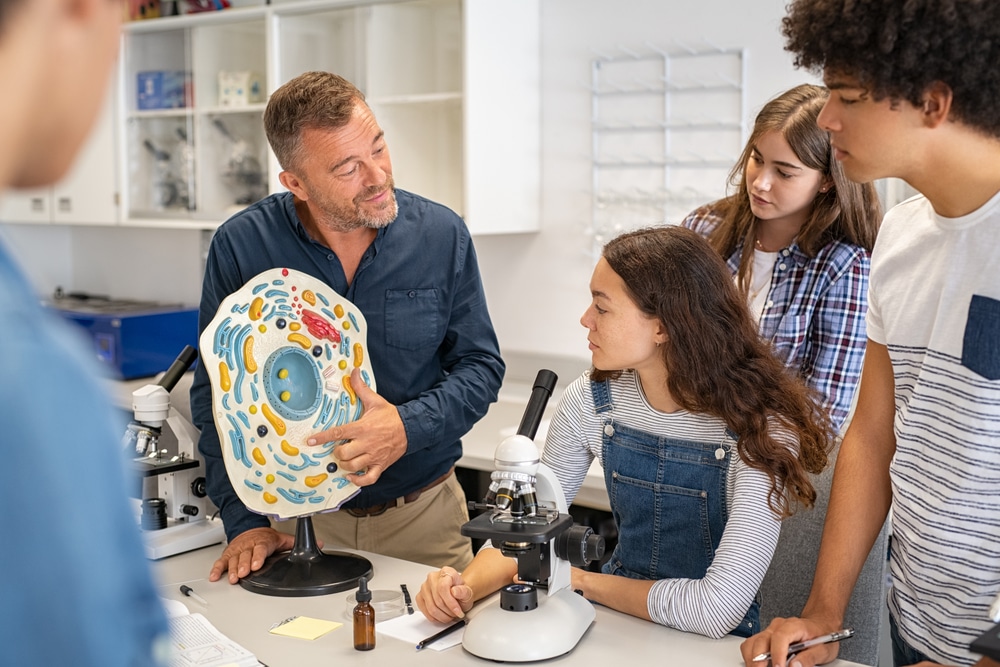
AACTE is excited to announce the call for applications for the Conference to Design Simulations that Enhance the Clinical Preparation of Secondary Science Teachers. Funded by the National Science Foundation (NSF) Discovery Research PreK-12 convening grant, the purpose of this conference is to convene experts across the country to (1) identify significant gaps in the clinical preparation of science educators (2) ideate on virtual environments that help address those gaps, and (3) develop scenarios through design thinking for EPPs to implement within their programs.
The conference attendees will be comprised of current high school science teachers, current science teacher candidates, experts in science education, experts in the use of simulation in educator preparation, experts in culturally responsive teaching practices in the sciences, experts in the Next Generation Science Standards, simulation specialists and representatives from partner organizations. Participants must commit to attending three days of the virtual conference (June 8, 9, and 10) along with three monthly (July, August and September) virtual meetings following the conference.
12 Apr2021
By Boyce C. Williams
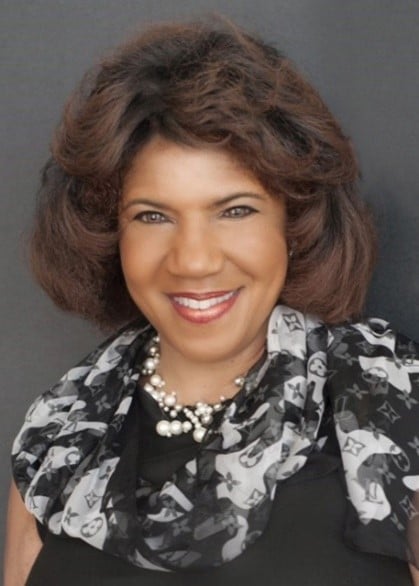 In October 2019, Frostburg State University (FSU) was awarded a five-year, $4.1 million grant from the U.S. Department of Education for the Maryland Accelerates: Teacher-Leader Residency for Inclusive Excellence program. This new program addresses Absolute Priority and Competitive Preference Priority I under the Department’s Teacher Quality Partnership (TQP) Program. By leveraging partnerships in high-need and rural schools, this innovative teacher-leader residency program will help realize State priorities in preparing and retaining highly effective teachers in the critical shortage areas of science, mathematics, computer science, English, and elementary education.
In October 2019, Frostburg State University (FSU) was awarded a five-year, $4.1 million grant from the U.S. Department of Education for the Maryland Accelerates: Teacher-Leader Residency for Inclusive Excellence program. This new program addresses Absolute Priority and Competitive Preference Priority I under the Department’s Teacher Quality Partnership (TQP) Program. By leveraging partnerships in high-need and rural schools, this innovative teacher-leader residency program will help realize State priorities in preparing and retaining highly effective teachers in the critical shortage areas of science, mathematics, computer science, English, and elementary education.
Modeled after the recommendations of the Commission on Innovation and Excellence in Education (also known colloquially as the Kirwan Commission), the program includes a full-year practicum, mentorship, extensive classroom observation, and research opportunities with an emphasis on culturally-responsive pedagogy, mathematical problem-solving, and computational thinking followed by an extended induction program. Graduates of the program receive a Master of Arts in Teaching degree and are mentored and supported through their early years of teaching to develop competency-based practices to move them towards achieving National Board Certification.
06 Apr2021
By JTE Insider
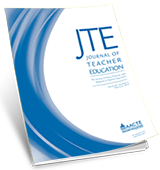 Listen to the recent JTE Insider podcast by the Journal of Teacher Education (JTE) editorial team. This blog is available to the public, and AACTE members have free access to the articles in the JTE online archives—just log in with your AACTE profile.
Listen to the recent JTE Insider podcast by the Journal of Teacher Education (JTE) editorial team. This blog is available to the public, and AACTE members have free access to the articles in the JTE online archives—just log in with your AACTE profile.
This podcast interview features insights from the article “Examining Preservice Teachers’ Perceptions of Planning for Culturally Relevant Disciplinary Literacy“ by Dr. Jamie Colwell, Kristen Gregory, and Valerie Taylor. The article was published in the March/April 2021 issue of the Journal of Teacher Education.
Article Abstract
This qualitative multiple case study examined four preservice teachers’ planning and perceptions of planning for culturally and socially relevant disciplinary literacy instruction in secondary disciplines. Four disciplines were represented: art, English, history, and physical education (P.E.)/health. This research sought to understand how a secondary literacy course and its requirements, with a particular focus on culturally relevant disciplinary literacy (CRDL) instruction. Particularities of the four disciplines of study represented were also considered to inform cross-content literacy coursework. Findings indicated preservice teachers (PSTs) recognized potential of CRDL to engage students in critical thought. However, core disciplines (English and history) had varying viewpoints of the reality of such instruction compared with noncore disciplines (art and P.E./health), and all PSTs struggled to perceive CRDL as a primarily student-focused approach to instruction.
06 Apr2021
By JTE Insider

Check out a recent JTE Insider blog interview by the Journal of Teacher Education (JTE) editorial team. This blog is available to the public, and AACTE members have free access to the articles in the JTE online archives—just log in with your AACTE profile
This interview features insights from the article “Becoming Clinically Grounded Teacher Educators: Inquiry Communities in Clinical Teacher Preparation“ by Rachel Wolkenhauer and Angela Hooser. The article was published in the March/April 2021 issue of the Journal of Teacher Education. .
Article Abstract: Calls for the renewal of teacher preparation through clinical practice have left many novice teacher educators to learn on the job. This article reports on the research of two such novices, studying their own practice. Addressing the need to better understand the approaches teacher educators take to clinically grounding their work, the authors used a hermeneutic approach to naturalistic inquiry to study their use of an inquiry community framework in a teacher preparation clinical setting. The authors found that within an arc of practitioner inquiry, explicitly teaching guided reflection and professional dialoguing skills within an inquiry community were key teacher educator practices. They found that an inquiry community approach holds promise as a structure and space for teacher educators to advance teacher preparation toward clinical practice.
25 Mar2021
By Jennifer L Parks
This article originally appeared in the University of Hawai’i News and is reprinted with permission.
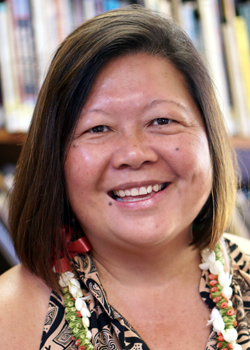 A University of Hawaiʻi at Mānoa College of Education professor is the recipient of the 2021 Southwest Conference on Language Teaching (SWCOLT) Excellence in Teaching Post-Secondary Award.
A University of Hawaiʻi at Mānoa College of Education professor is the recipient of the 2021 Southwest Conference on Language Teaching (SWCOLT) Excellence in Teaching Post-Secondary Award.
With more than 30 years of experience teaching Hawaiian language and developing programs in public and charter schools throughout the state of Hawaiʻi, Alohilani Okamura said she developed a deep respect for learning the language as a graduate student at UH Mānoa.
SWCOLT is a regional world language teachers’ organization in partnership with state teacher associations from Hawaiʻi, Arizona, California, Colorado, Nevada, New Mexico, Oklahoma, Texas and Utah. Okamura, who is in the Institute for Teacher Education (ITE) Secondary World Languages, was selected for her exceptional commitment to language education.
25 Mar2021
By Dawn Williams
Howard University is pleased to announce its recent endorsement by the College Board to host an Advanced Placement Summer Institute in 2021. The Howard University School of Education is committed to increasing the diversity of AP educators and high school students enrolled in these courses. APSI@Howard will offer 2 cohorts for new and experienced AP teachers during the weeks of July 19-23, 2021 and July 26-30, 2021.
Our virtual AP Summer Institute will bring part of the Howard experience to AP teachers worldwide. Throughout the institute, educators will receive intensive training on the curriculum and teaching methods of AP courses while also being exposed to modules around implicit bias and anti-racist teaching and pedagogical approaches. Each workshop will include an experiential learning opportunity related to the field with the intent of modeling instruction. The workshops will allow teachers the opportunity to interact with colleagues and discuss concerns surrounding the AP courses they will teach. Please feel free to pass this information along to school and district leaders as well as high school teachers.
APSI @ Howard University is now accepting registrations.
July 19-23, 2021 Week 1 registration
July 26-30, 2021 Week 2 registration
Dawn Williams is the Dean of the Howard University School of Education.
23 Mar2021
By Anna Joseph, Ofelia Schepers and Kathryn Young
The widespread prevalence of trauma and subsequent impacts on student learning and behavior is well known and documented. PK-12 schools across the nation are integrating trauma-informed practices (TIP) to better respond to the needs of children who have experienced trauma. Furthermore, there are an increasing number of educator preparation programs that offer trauma training to their teacher candidates. This blog outlines one educator preparation program’s efforts to prepare its students in TIP.
The Metropolitan State University of Denver School of Education (SOE) in partnership with local non-profit Resilient Futures is integrating TIP into its entire curriculum. TIP is merged seamlessly with existing course learning objectives, ensuring that all students graduate competent to recognize and address the needs of children who have experienced trauma in their future classrooms and school settings. It is important for novice educators to have TIP integrated into their overall teacher preparation rather than required as an additional class or training to their already-crowded programs of study. With TIP integrated into course learning objectives, students understand how TIP is fundamental to all aspects of teaching and classes and not supplemental or add-on.
05 Mar2021
By Katrina Norfleet
AACTE is delighted to introduce the newest additions to its national staff: Ana-Maria Gutierrez, manager, digital content and IT, and interns Ann Marie Wernick and Gaëlle Gilbert.
Ana-Maria Gutierrez

Ana-Maria Gutierrez has 20 years of experience working in strategic communications, technology applications, graphic design, and social media. In her last position, she worked in the Disabilities Studies and Services Center at Family Health International (formerly the Academy for Educational Development) serving as deputy director for several national projects funded by the U.S. Department of Education and Health and Human Services. Her career has been focused in the special education field, working primarily to promote the use of assistive technology (AT) to serve the needs of children and youth with disabilities. As the technical lead for a national AT information and training series of more than 100 webinars, she had contact with hundreds of special education teachers, pre-service teachers and post-secondary educators, which has provided her a unique perspective on the needs of educators as well as students.
13 Feb2021
By JTE Insider

Listen to the recent JTE Insider podcast by the Journal of Teacher Education (JTE) editorial team. This blog is available to the public, and AACTE members have free access to the articles in the JTE online archives—just log in with your AACTE profile.
This podcast interview features insights from the article “Historians, Archivists, and Museum Educators as Teacher Educators: Mentoring Preservice History Teachers at Cultural Institutes,” by Tim Patterson. The article was published in the January/February issue of the Journal of Teacher Education.
25 Jan2021
By Chad Baldwin
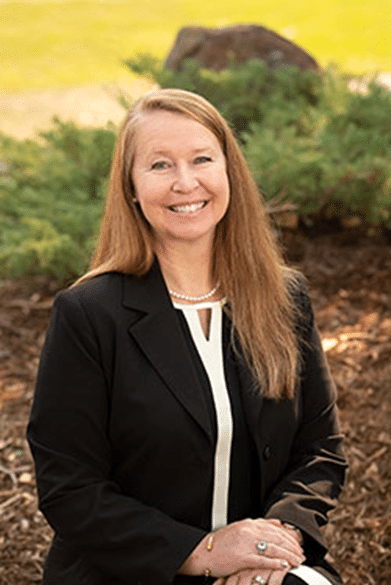 The associate dean of undergraduate programs in the University of Wyoming College of Education is the recipient of the Outstanding Science Teacher Educator of the Year Level One Award.
The associate dean of undergraduate programs in the University of Wyoming College of Education is the recipient of the Outstanding Science Teacher Educator of the Year Level One Award.
Andrea Burrows, a professor in the UW School of Teacher Education, received the award during the Association for Science Teacher Education (ASTE) 2021 International Conference, which took place virtually Jan. 14-15. As part of the award, she received a plaque and a cash award from Carolina Biological Supply Co., and she will be recognized in the awards issue of the ASTE newsletter.
The award recognizes the individual achievements and contributions of ASTE members in the first 10 years of their careers. Burrows has inspired pre-service science educators at UW for over nine years. She has won past awards from ASTE, including the 2019 John C. Park National Technology Leadership Initiative Fellowship and the Innovation in Teaching Science Teachers Award in 2020.
“I am truly honored that ASTE would choose me as the 2021 Outstanding Science Teacher Educator,” Burrows says. “My goals as a science teacher educator include continuing research to discover the workings of interdisciplinary spaces involving STEM and providing high-quality professional development for K-20 teachers to use what we are learning. This award provides recognition of the value of this type of interdisciplinary work.”
Burrows was selected for the award based on numerous achievements throughout her career, including the $1.2 million National Science Foundation (NSF) Noyce grant she leads to recruit students with STEM (science, technology, engineering and mathematics) backgrounds into the teaching field. This novel program has helped recruit and support 51 secondary science and mathematics teachers since 2013. She also co-leads a $1 million NSF Computer Science for All grant, which has provided teacher professional development and support since 2019.
17 Dec2020
By Margie Low
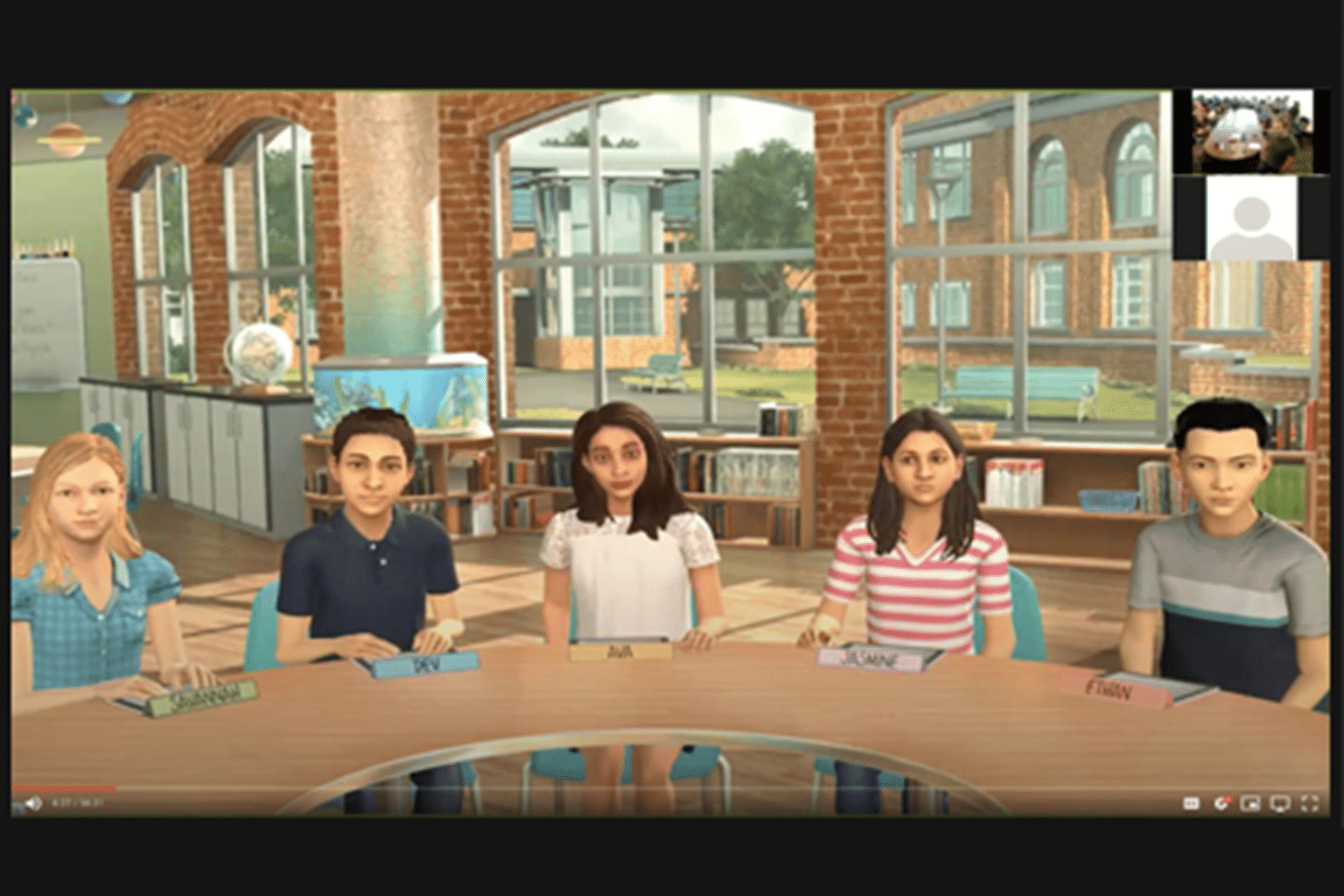
Photo: A screenshot of Cal State LA student-teachers interacting virtually with avatar pupils in a simulated classroom. (Credit: Cal State LA)
California State University, Los Angeles (Cal State LA ) has been awarded a three-year, $586,000 grant from the National Science Foundation (NSF) to train future teachers in math and science instruction using a simulation lab.
The grant will establish Simulations for Minority Interactive Learning Environments (SMILE): A Design and Development Project at Cal State LA. The project will feature a simulation lab that will help prepare elementary teachers who will work in high-need urban schools to offer a successful learning experience in math and science.
Researchers will also study the integration of the use of mixed-reality virtual simulations in teacher preparation across several courses in the university’s Multiple Subject Teaching Credential Program. Faculty in Cal State LA’s Charter College of Education (CCOE) will create scenarios and develop scripts specifically intended to teach STEM concepts.
15 Dec2020
By JTE Insider

Read the recent JTE Insider blog interview by the Journal of Teacher Education (JTE) editorial team. This blog is available to the public, and AACTE members have free access to the articles in the JTE online archives—just log in with your AACTE profile.
This interview features insights on the article entitled, “Using Video to Highlight Curriculum-Embedded Opportunities for Student Discourse” by Abby Reisman and Lisette Enumah. The article was published in the November/December 2020 issue of the Journal of Teacher Education.
Article Abstract: History classrooms remain stubbornly resistant to instructional change. We explored whether using classroom video to help teachers identify curriculum-embedded opportunities for student discourse improved their understanding and facilitation of document-based historical discussions. We observed a relationship between teachers’ capacity to notice curriculum-embedded opportunities for student discourse in classroom videos and their growth in enacting document-based history discussions. For three of four teachers, the intervention appeared to improve both their analysis of document-based discussion facilitation and their enactment of the practice. Teachers’ incoming proficiency and familiarity with document-based history instruction appeared to inform their experience throughout the intervention. We discuss implications for practice and future research on professional development for history teachers.
30 Nov2020
By Erica D. McCray
This article originally appeared in District Administration and is reprinted with permission.
 The teacher shortage is real, complex, and concerning—especially in high-demand specialty areas such as special education, math and science, English as a second language, and foreign language. This comes as no surprise, as many reports indicate low enrollment in these educator preparation program (EPP) teaching areas. While it is important to reflect upon the current state of the teacher shortage, it is imperative that EPPs analyze changes in student enrollment to determine future implications for the teacher workforce.
The teacher shortage is real, complex, and concerning—especially in high-demand specialty areas such as special education, math and science, English as a second language, and foreign language. This comes as no surprise, as many reports indicate low enrollment in these educator preparation program (EPP) teaching areas. While it is important to reflect upon the current state of the teacher shortage, it is imperative that EPPs analyze changes in student enrollment to determine future implications for the teacher workforce.
The American Association of Colleges for Teacher Education (AACTE) recently released the issue brief, Degree Trends in High-Demand Teaching Specialties. Authored by Jacqueline E. King, Ph.D., the report examines trends in sub-specialties within the high-demand areas based on data that colleges report to the U.S. Department of Education’s Integrated Postsecondary Education Data System (IPEDS). While the report offers a few bright spots, it suggests that current PK-12 school shortages will not be remedied simply by hiring newly-prepared teachers.
02 Nov2020
By Katrina Norfleet
The University of Michigan’s TeachingWorks is offering a series of free virtual mini-courses for English language arts teacher educators as part of its goal is to create a system for teacher preparation and establish support that will produce skillful beginning teachers who disrupt inequity.
The mini-courses will help build an understanding of critical content in ELA and develop practice-based approaches for teaching that content to novice teachers. This series will support ELA teacher educators to develop K-12 instruction and teacher education that fills immediate needs for children and contributes to building an education that dismantles injustice instead of perpetuating it.
The next course available for registration takes place on December 4, 2020:
23 Oct2020
By Jacqueline E. King, Ph.D.
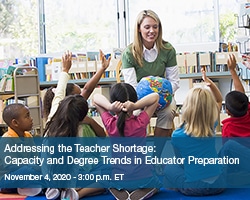 Before the coronavirus pandemic, there were significant teacher shortages in many communities. Since the pandemic began, teacher retirements and other departures from the profession have accelerated. Can the nation’s higher education institutions meet the demand for new teachers, particularly in high-demand fields such as special education, STEM, and foreign language? What do trends over the last decade portend for the future of educator preparation?
Before the coronavirus pandemic, there were significant teacher shortages in many communities. Since the pandemic began, teacher retirements and other departures from the profession have accelerated. Can the nation’s higher education institutions meet the demand for new teachers, particularly in high-demand fields such as special education, STEM, and foreign language? What do trends over the last decade portend for the future of educator preparation?
An upcoming webinar will review the findings from two new AACTE issue briefs that address these questions:
- Institutions Offering Degrees in Education: 2009-10 to 2018-19
- Degree Trends in High-Demand Teaching Specialties: 2009-10 to 2018-19








 In October 2019, Frostburg State University (FSU) was awarded a five-year, $4.1 million grant from the U.S. Department of Education for the Maryland Accelerates: Teacher-Leader Residency for Inclusive Excellence program. This new program addresses Absolute Priority and Competitive Preference Priority I under the Department’s Teacher Quality Partnership (TQP) Program. By leveraging partnerships in high-need and rural schools, this innovative teacher-leader residency program will help realize State priorities in preparing and retaining highly effective teachers in the critical shortage areas of science, mathematics, computer science, English, and elementary education.
In October 2019, Frostburg State University (FSU) was awarded a five-year, $4.1 million grant from the U.S. Department of Education for the Maryland Accelerates: Teacher-Leader Residency for Inclusive Excellence program. This new program addresses Absolute Priority and Competitive Preference Priority I under the Department’s Teacher Quality Partnership (TQP) Program. By leveraging partnerships in high-need and rural schools, this innovative teacher-leader residency program will help realize State priorities in preparing and retaining highly effective teachers in the critical shortage areas of science, mathematics, computer science, English, and elementary education. Listen to the recent JTE Insider podcast by the Journal of Teacher Education (JTE) editorial team. This blog is available to the public, and AACTE members have free access to the articles in the JTE online archives—just
Listen to the recent JTE Insider podcast by the Journal of Teacher Education (JTE) editorial team. This blog is available to the public, and AACTE members have free access to the articles in the JTE online archives—just 
 A University of Hawaiʻi at Mānoa College of Education professor is the recipient of the 2021
A University of Hawaiʻi at Mānoa College of Education professor is the recipient of the 2021 
 The associate dean of undergraduate programs in the University of Wyoming College of Education is the recipient of the Outstanding Science Teacher Educator of the Year Level One Award.
The associate dean of undergraduate programs in the University of Wyoming College of Education is the recipient of the Outstanding Science Teacher Educator of the Year Level One Award.
 The teacher shortage is real, complex, and concerning—especially in high-demand specialty areas such as special education, math and science, English as a second language, and foreign language. This comes as no surprise, as many reports indicate low enrollment in these educator preparation program (EPP) teaching areas. While it is important to reflect upon the current state of the teacher shortage, it is imperative that EPPs analyze changes in student enrollment to determine future implications for the teacher workforce.
The teacher shortage is real, complex, and concerning—especially in high-demand specialty areas such as special education, math and science, English as a second language, and foreign language. This comes as no surprise, as many reports indicate low enrollment in these educator preparation program (EPP) teaching areas. While it is important to reflect upon the current state of the teacher shortage, it is imperative that EPPs analyze changes in student enrollment to determine future implications for the teacher workforce. Before the coronavirus pandemic, there were significant teacher shortages in many communities. Since the pandemic began, teacher retirements and other departures from the profession have accelerated. Can the nation’s higher education institutions meet the demand for new teachers, particularly in high-demand fields such as special education, STEM, and foreign language? What do trends over the last decade portend for the future of educator preparation?
Before the coronavirus pandemic, there were significant teacher shortages in many communities. Since the pandemic began, teacher retirements and other departures from the profession have accelerated. Can the nation’s higher education institutions meet the demand for new teachers, particularly in high-demand fields such as special education, STEM, and foreign language? What do trends over the last decade portend for the future of educator preparation?